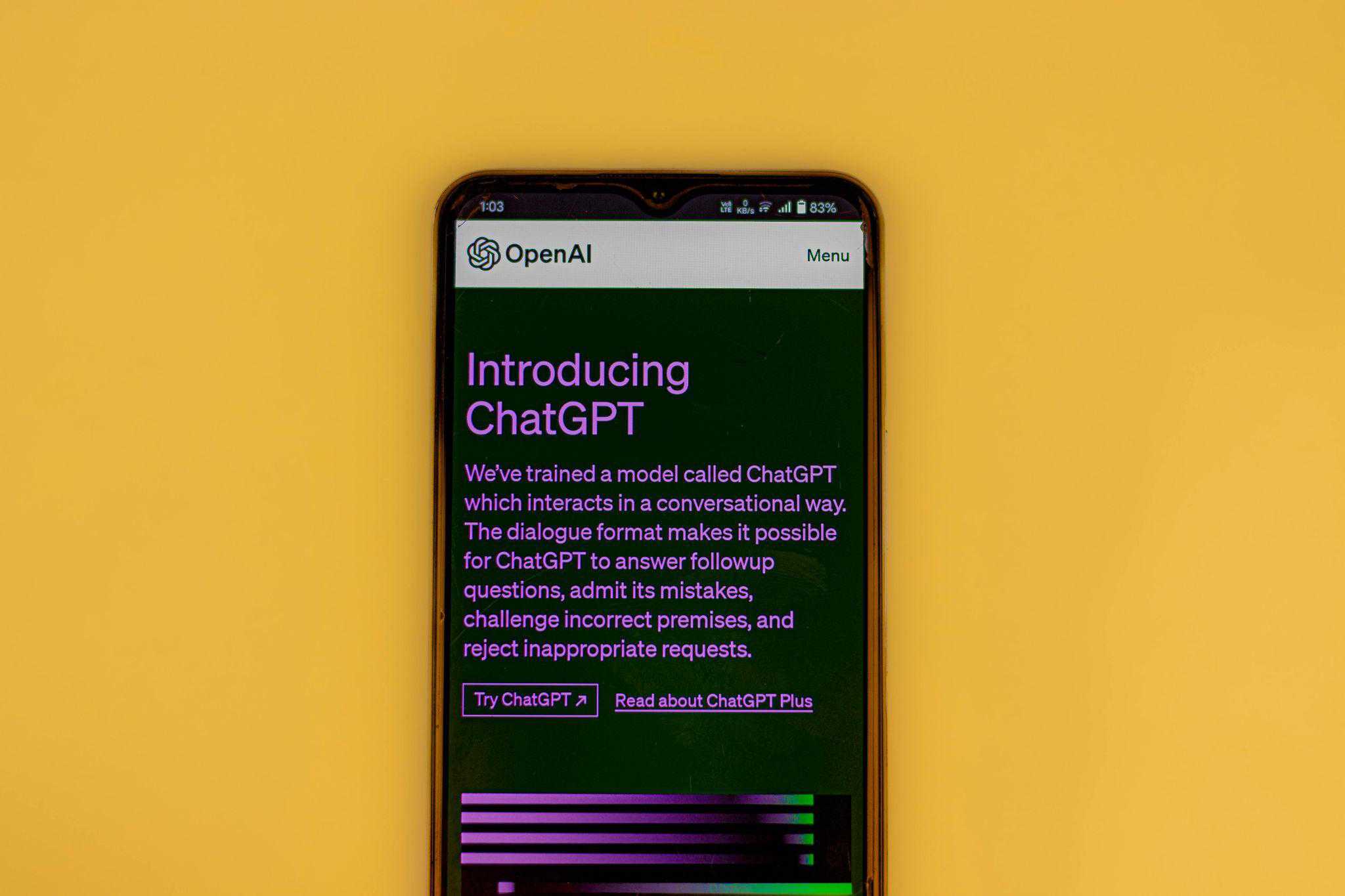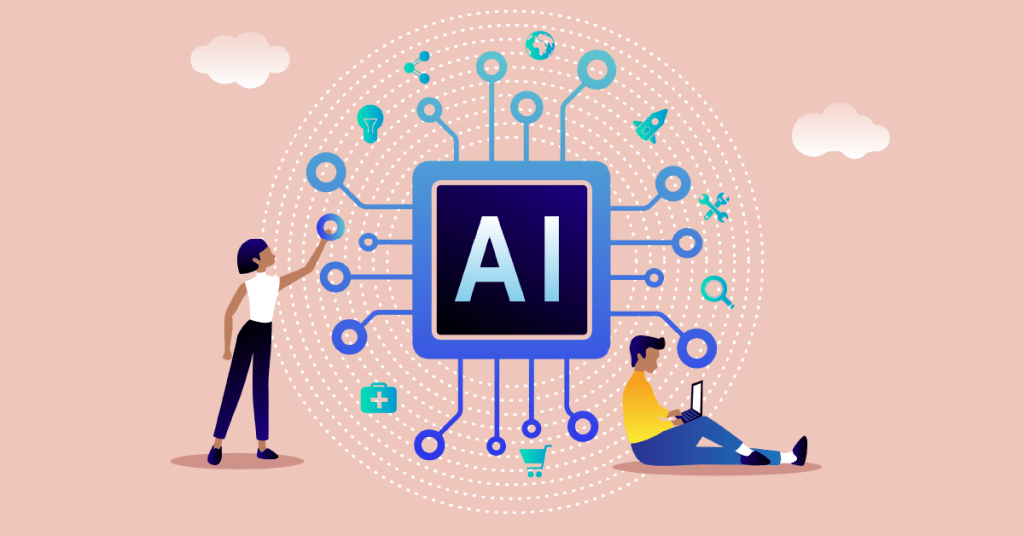The digital landscape is ever-evolving, and at the forefront of this transformation is the integration of Artificial Intelligence (AI) in social media marketing. As we delve deeper into the 21st century, AI’s role in shaping and enhancing our online experiences becomes increasingly evident. From predictive analytics to personalized user experiences, AI is revolutionizing the way brands interact with their audiences. But what does the future of AI in social media marketing look like? Let’s embark on a journey to uncover the potential and challenges of AI-driven strategies in the digital marketing world.

1. Predictive Analysis and Consumer Behavior
AI’s capability to analyze vast amounts of data in real-time has not only revolutionized predictive analysis but has also paved the way for a more dynamic and responsive marketing approach. For marketers, this means a more profound understanding of consumer behavior, preferences, and patterns. By analyzing these patterns and trends, AI can predict what content a user is likely to engage with next, allowing for more targeted and effective campaigns.
Example: Consider platforms like Netflix or Spotify, which use AI to recommend shows, movies, or music based on user preferences. This same technology is being harnessed in social media marketing to predict and suggest content that users are most likely to engage with.
Deep Dive: The power of predictive analysis lies in its ability to forecast future trends based on historical data. For instance, if a particular product sees a spike in interest every winter, AI can predict a similar trend for the upcoming season, allowing businesses to stock up or run relevant promotions. Moreover, by understanding user behavior, brands can also identify potential new markets or niches that they might not have considered before.
2. Chatbots and Customer Service
The integration of AI in customer service has led to a paradigm shift in how businesses interact with their customers. Gone are the days when customers had to wait for hours, if not days, to get a response from customer service. With AI-driven chatbots, queries are addressed instantaneously, enhancing user experience and brand loyalty.
Example: Many e-commerce websites now have chatbots that assist customers in real-time, guiding them through product selections, answering queries about shipping, and even processing returns.
Deep Dive: Modern chatbots are equipped with Natural Language Processing (NLP), enabling them to understand and respond to complex queries. This not only improves efficiency but also ensures that customers feel heard and valued. Furthermore, these chatbots can learn from past interactions, continually refining their responses to offer better support in the future.
3. Content Creation and Curation
In today’s digital age, content is king. However, creating engaging and relevant content consistently can be a challenge. Enter AI. Tools powered by AI can now generate content based on specific parameters, ensuring that the material is both relevant and engaging.
Example: Tools such as ChatGPT can generate blog post ideas, social media posts, or even full articles based on trending topics and keywords.

Deep Dive: AI-driven content tools analyze trending topics, keywords, and audience preferences to generate content that’s both timely and relevant. This not only saves time but also ensures that the content produced aligns with the brand’s voice and message. Moreover, AI can also assist in content distribution, ensuring that the content reaches the right audience at the right time.
4. Enhanced Ad Targeting
The era of generic ads is long gone. In today’s competitive market, personalization is the key to capturing the audience’s attention. One of the most significant advantages of AI in social media marketing is its ability to enhance ad targeting. By analyzing user behavior, likes, shares, and interactions, AI can help marketers create highly targeted ad campaigns that resonate with the intended audience.
Example: Platforms like Facebook and Instagram already utilize AI algorithms to show users ads based on their interests, online behavior, and even their recent search history.
Deep Dive: The precision of AI-driven ad targeting means a higher return on investment (ROI) for businesses. By ensuring that ads reach the right audience at the right time, brands can achieve better conversion rates and customer engagement. Additionally, AI can also optimize ad budgets, ensuring that brands get the best value for their money.
5. Visual Recognition and Brand Monitoring
In the age of visual media, images and videos play a pivotal role in brand promotion. With AI’s visual recognition capabilities, brands can now monitor their presence across social media platforms more effectively. This technology allows companies to track where and how their brand is mentioned, even if it’s just through an image or logo.
Example: Brands can now identify user-generated content that features their products, even if they aren’t tagged or mentioned explicitly. This provides valuable insights into how consumers are using and perceiving their products in real life.
Deep Dive: Visual recognition goes beyond brand logos. It can identify products, scenes, and even emotions in images. This provides brands with a wealth of information on how their products are being used and perceived in real life. By understanding these visual cues, brands can tailor their marketing strategies to better resonate with their audience.

6. Personalized User Experiences
In today’s digital landscape, consumers are bombarded with information. To stand out, brands need to offer personalized experiences that cater to individual user preferences. With AI, brands can offer personalized content, product recommendations, and even shopping experiences based on a user’s past behavior and preferences.
Example: E-commerce platforms like Amazon use AI to recommend products to users based on their browsing history and past purchases. Similarly, streaming platforms like Netflix and Spotify use AI to curate personalized playlists and show recommendations.
Deep Dive: Personalization extends beyond product recommendations. AI can tailor the entire user journey, from the content they see on a website to the emails they receive. This level of personalization enhances user engagement and brand loyalty. By understanding individual user preferences, brands can create tailored marketing campaigns that resonate on a personal level.
7. AI in Video Content
The rise of platforms like TikTok and YouTube underscores the importance of video content in today’s digital marketing strategies. Video content is rapidly becoming the most consumed form of content on social media. AI is playing a pivotal role in video content creation, analysis, and distribution.
Example: Platforms like YouTube use AI to recommend videos to users based on their viewing history. Similarly, TikTok uses AI to curate a user’s “For You Page” based on their interactions, likes, and shares.
Deep Dive: AI can analyze video content to determine its content, sentiment, and even the emotions of the people in the video. This data is invaluable for marketers looking to understand the impact of their video content and how to improve it. By understanding these insights, brands can create more engaging video content that resonates with their audience.
8. Voice and Speech Recognition
The rise of smart speakers and voice-activated assistantslike Alexa, Siri, and Google Assistant has ushered in a new era of voice search and commands. As voice searches become more prevalent, brands need to optimize their content to cater to this new form of search.
Example: Brands are now optimizing their content for voice search, ensuring they remain visible in this new search paradigm. This includes creating content that answers specific questions, as voice searches are often in the form of questions.
Deep Dive: Beyond search, voice and speech recognition are being used in innovative ways. For instance, podcast content can be analyzed to determine brand mentions, sentiment, and more, providing a new dimension to social media analytics. As voice technology continues to evolve, brands need to stay ahead of the curve to ensure they remain relevant in this new era of voice search.

9. Augmented Reality (AR) and Virtual Reality (VR) in Social Media
The lines between the digital and physical worlds are blurring, thanks to advancements in AR and VR technology. AR and VR are set to redefine social media interactions, offering users immersive experiences that were previously unimaginable. Imagine being able to provide an interactive software walkthrough created using product tour software.
Example: Snapchat’s AR filters, which can transform a user’s appearance or surroundings in real-time, are a testament to the potential of AI-driven AR in social media. Similarly, brands are now using VR to offer virtual store tours, allowing users to experience their products before making a purchase.
Deep Dive: Brands can leverage AR and VR for virtual product launches, interactive ads, or even virtual storefronts. These experiences can drive engagement, brand recall, and conversions in ways traditional content can’t. As AR and VR technology becomes more accessible, brands that fail to incorporate these technologies into their marketing strategies risk being left behind.
10. The Challenge of Deepfakes
While AI offers numerous benefits, it also poses challenges. Deepfakes, or AI-generated videos that can mimic real individuals, are a growing concern. These videos can be so convincing that they are often indistinguishable from real footage, leading to potential misinformation and trust issues.
Example: There have been instances where deepfake videos of celebrities or public figures have gone viral, leading to confusion and misinformation.
Deep Dive: Brands must be vigilant and proactive in monitoring their online presence, ensuring that any content associated with them is genuine. As deepfake technology becomes more advanced, the need for verification tools and techniques becomes paramount. Brands need to invest in AI-driven verification tools that can detect deepfakes or other manipulated content to safeguard their reputation.

11. AI-Driven Social Media Analytics
Data is the lifeblood of any marketing strategy. With the vast amounts of data generated on social media platforms, traditional analytics tools often fall short. Enter AI-driven social media analytics. These tools offer a more in-depth and comprehensive analysis of social media data, providing brands with actionable insights to refine their strategies.
Example: Tools that use AI to forecast engagement rates, suggesting optimal times to post or predicting the virality of content.
Deep Dive: AI-driven analytics tools can analyze vast datasets in real-time, providing brands with up-to-date insights into their performance. These tools can identify emerging trends, track brand sentiment, and even predict future performance, allowing brands to be proactive rather than reactive in their strategies.
12. Ethical Considerations in AI-driven Social Media Marketing
As with any technology, the use of AI in social media marketing comes with ethical considerations. From data privacy concerns to the potential for bias in AI algorithms, brands need to be aware of the ethical implications of their AI-driven strategies.
Example: There have been instances where AI algorithms have shown bias, leading to skewed results and potential PR disasters.
Deep Dive: Brands need to ensure that their AI tools and algorithms are transparent and free from bias. This includes regularly auditing their AI tools, being transparent about their use of AI, and ensuring that they have the necessary safeguards in place to protect user data.
13. The Role of Emotional Intelligence in AI-Driven Marketing
In the rush to embrace the technological advances AI offers, it’s easy to overlook one essential element: emotional intelligence (EI). As brands increasingly rely on AI for their social media marketing endeavors, they need to strike a balance between automation and genuine human connection. After all, social media thrives on authentic interactions and emotions.
Example: A brand may use AI to identify when a user’s birthday is and send automated birthday wishes. However, a more emotionally intelligent approach might involve sending a personalized discount or a heartfelt message that acknowledges their loyalty to the brand.
Deep Dive: Emotional intelligence in the context of AI-driven social media marketing involves recognizing, understanding, and addressing the emotions and needs of the audience. While AI can analyze data and recognize patterns, human touch and genuine empathy are irreplaceable.
– Empathy in Chatbots: While chatbots can resolve queries efficiently, they should also be programmed to recognize when a user is frustrated or needs human intervention. An emotionally intelligent chatbot would know when to escalate a conversation to a human representative.
– Content Creation with Empathy: When AI tools generate content, they should be guided by principles that promote genuine connection and empathy. For example, if a community is going through a challenging time (like a natural disaster), AI should be sensitive enough not to promote sales-driven content to that audience.
– Sentiment Analysis: AI-driven tools can monitor social media to gauge the sentiment around a brand or a particular topic. But interpreting this data requires a blend of AI efficiency and human emotional understanding. For instance, if there’s negative sentiment because of an issue, an emotionally intelligent response would be to address the concern head-on, apologize if necessary, and outline steps for resolution.
Embracing the Future with Empathy: As AI continues to evolve, brands must prioritize emotional intelligence in their strategies. By doing so, they can ensure that their communications are not only data-driven but also heart-driven. This blend of technology and humanity will be the key to building lasting relationships in the ever-evolving digital landscape.
Final Thoughts on the Future of AI in Social Media
The future of social media marketing, powered by AI, promises efficiency, precision, and scalability. But as brands leverage these tools, they must not lose sight of the human element. Balancing AI’s capabilities with emotional intelligence will be the cornerstone of successful, authentic, and impactful social media strategies. As we forge ahead into this AI-driven world, brands must remember that at the heart of every click, like, and share is a human seeking genuine connection.

